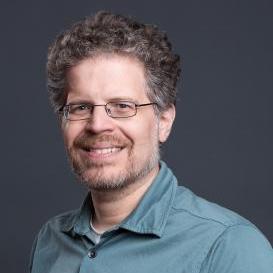Jamie Cohen-Cole

Jamie Cohen-Cole
Department Chair; Associate Professor of American Studies
Contact:
Jamie Cohen-Cole's research and teaching examines how science shapes and has been molded in modern life; the history of education; and the cultural history of research universities. He focuses on how the work of scientists, social critics, educators and policy makers interact; the processes through which the sciences define normal human nature, the history of computing, and the values that shape intellectual culture. His first book chronicles the development and promulgation of a scientific vision of the rational, creative, open-minded self. This open-minded, rational self became a defining feature of centrist pluralism in the cold war era. It served as an ideal citizen of modern America, as an exemplary intellectual and, with the emergence of cognitive science, as a model of human nature.
History of Science and Technology, Cultural and Intellectual History.
Jamie Cohen-Cole is currently engaged in two research projects. The first is a study of the multiple and interconnected roles played by intersubjectivity and empathy and understanding over the last fifty years. This project explores how capacity for intersubjective empathy has not only come to mark off the boundaries between health and pathology, but has also served as a tool for distinguishing humans from machines and other organisms, as a criterion for policing gender norms, and as a cultural orientation associated with liberal politics.
The second project seeks to explain the influence of the sciences of human nature on technologies of democratic governance. It focuses on how political theory and practices were shaped by two opposing visions of human nature developed by cognitive science. In the 1950s and 1960s cognitive science depicted humans as rational, autonomous, creative, and flexible thinkers. However within two decades cognitive science had reversed course and began to emphasize human irrationality. Starting in the late 1960s, a coalition of cognitive scientists and economists founded behavioral economics and challenged the picture, previously advanced by their own fields, of humans as rational beings. In both instances, the picture of human nature framed by cognitive science led and influenced theories and practices of government.
Science, Politics and Society in Modern America (Undergraduate Lecture / Discussion)
Human Minds and Artificial Intelligence (Dean's Seminar)
Science and Social Identity (Graduate Reading Class)
Cold War America (Undergrad Research / Graduate Research)
Discovering the Mind (Undergraduate Lecture / Discussion)
Gender and Science (Undergraduate Seminar)
Book
The Open Mind: Cold War Politics and the Sciences of Human Nature (University of Chicago Press, 2014)
Articles
"The Politics of Psycholinguistics” Journal of the History of the Behavioral Sciences, 51, no 1 (2015): 54–77
“The Creative American: Cold War Salons, Social Science, and the Cure for Modern Society”, Isis, 100, no. 2 (2009): 219-62.
“Instituting the Science of Mind: Intellectual Economies and Disciplinary Exchange at Harvard’s Center for Cognitive Studies”, British Journal for the History of Science 40, no. 4 (2007): 567-597.
“The Reflexivity of Cognitive Science: The Scientist as Model of Human Nature”, History of the Human Sciences 18, no. 4 (2005): 107-39.
A.B., Harvard College

